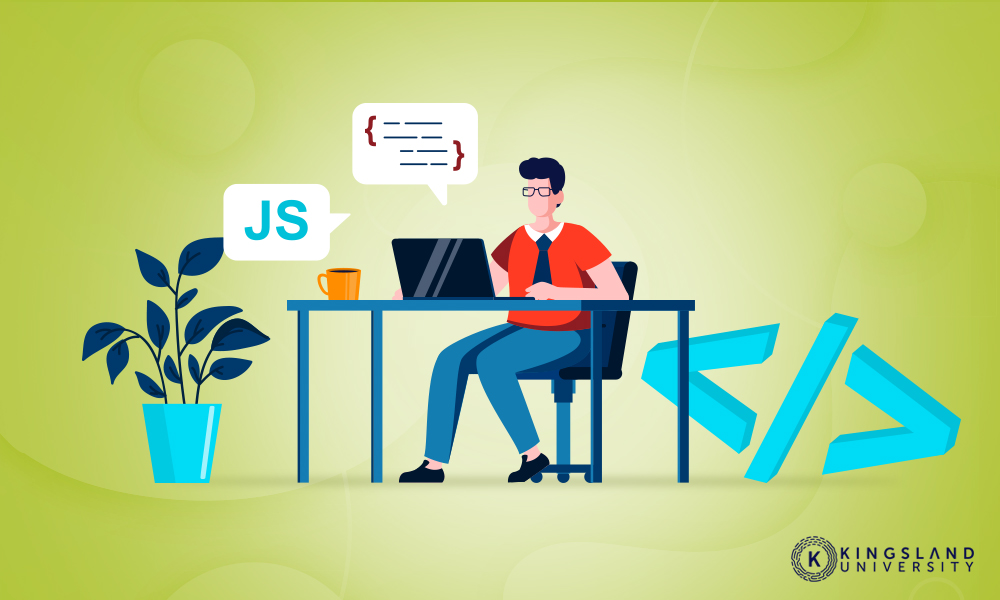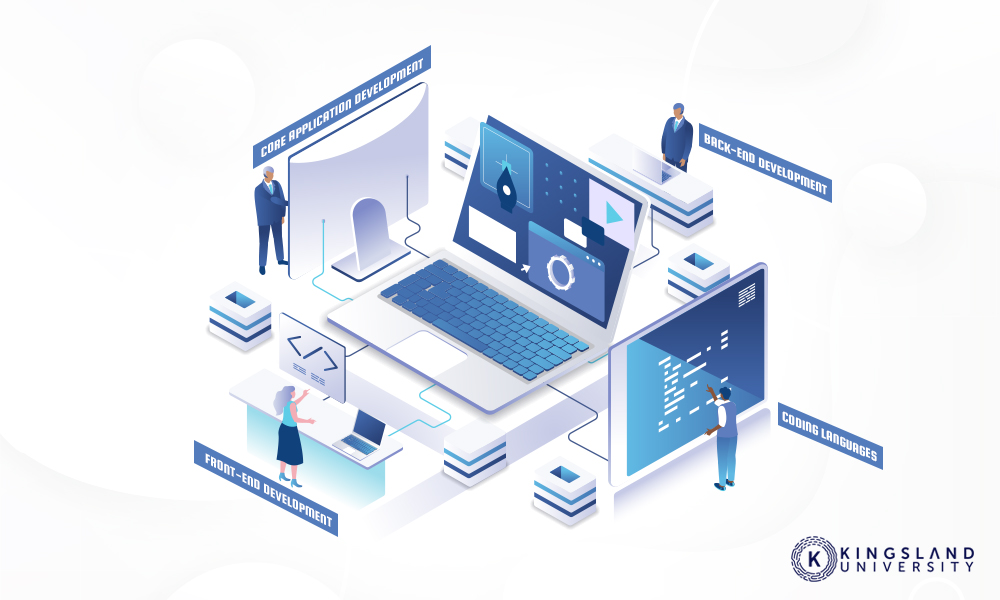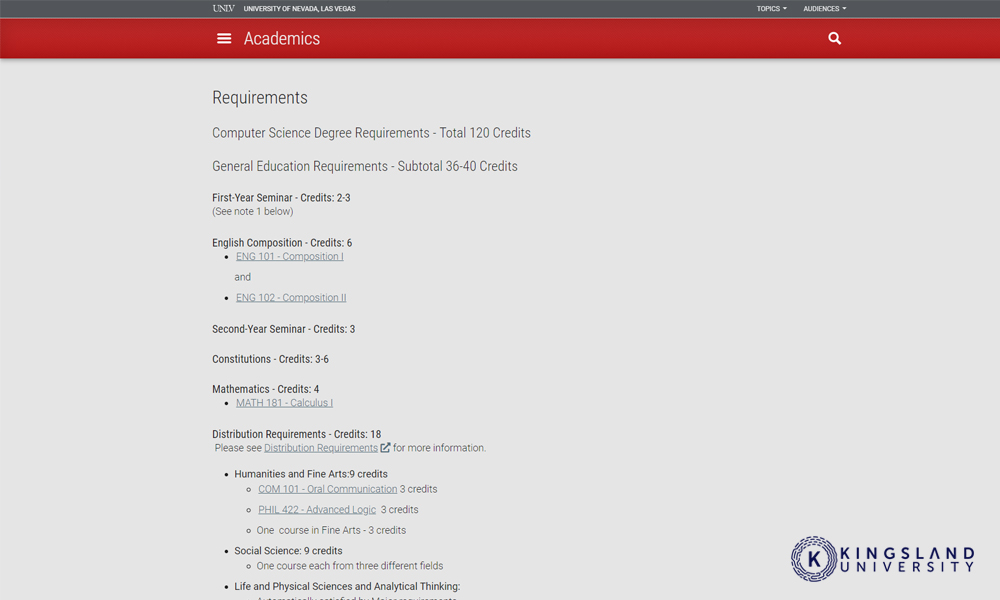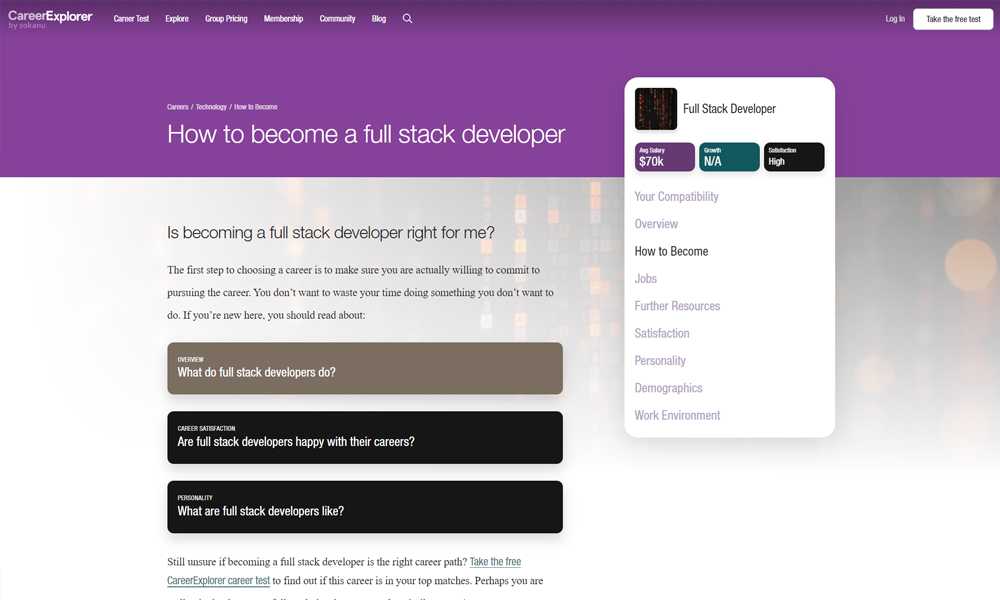
If you are an aspiring full-stack developer, odds are that you are going to be looking for full-time work at an existing firm or office. You are probably also wondering what sort of qualifications are sought after in a full-stack developer. Growing up, we are told that university and degrees are the best tools to ensure a vibrant and successful career. But is that always the case? We want to answer that question for you.
What is a Full-stack Developer?
The first step should be to clarify what a full-stack developer is and what role they play in the development world. Full-stack developers are among the most intensive positions out there since their responsibilities far exceed those of the average programmer. Full-stack developers have their titles because they are responsible for a comprehensive stack of responsibilities in both front-end and back-end development.

A full-stack developer is responsible for everything from the front-end user experience and design, to the application itself in code and function, to the back-end infrastructure that supports it via servers and databases.
This means that a full-stack developer’s responsibility extends to post-project support and interaction with the client base to ensure the product still functions properly. This also means that full-stack developers need to know a lot more than a standard software engineer or coding contractor.
What do You Need to Know?
Due to the sheer amount of responsibility a full-stack developer adopts once hired, they are required to have an extensive understanding of a wide array of skills.
- Coding Languages: The proverbial “bread and butter” of all computer experts, coding language comprehension is vital to any full-stack developer’s success. Since a full-stack developer is meant to maintain and design so much, they are required to understand JavaScript, C++, HTML, and countless other coding languages for both kinds of development.
- Core Application Development: Full-stack developers are responsible for designing the framework and execution of how their application or website receives the information it needs and how it redistributes that information to the users. This level of understanding of programming is required to ensure the application does what it needs to instead of simply being bloatware with no functionality.
- Back-End Development: The most obvious responsibility of a full-stack developer is to manage the databases and program structure of their product. Working to maintain the application or site from behind the scenes and correcting bugs and issues as they go along to ensure continued traffic and use is a core responsibility.
- Front-End Development: In addition to the developer’s more mainstream responsibilities, a full-stack developer is also responsible for the interface side of their product. They need to design the user interface and put themselves in the shoes of their target consumer to design a website or application that is easy and satisfying to use. Additionally, they make updates and modifications to better suit the needs and desires of their client base as they maintain their application.

This is not everything a full-stack developer needs to know as, like most industries, there are new programs, tools, and techniques being developed every day that change the way the job is executed. There are also subtle caveats to certain skill requirements, such as the need for specific coding and programming languages for both front and back-end development. (i.e., HTML is a front-end coding language, whereas C++ is a back-end language.)
The Degree Conundrum
You will be hard-pressed to meet anyone in the 21st Century who was not raised with the goal of getting into a university in mind. For more complex fields, such as coding and development, the educational programs associated with those universities become more difficult and serve as an excellent way to test how effective you are in a particular field. But what does a degree do for you? And how difficult is it to get one?
Well, as per an article published by the Computer Science Degree Hub, graduates of computer science programs enjoy a 61% rate of employment following the successful completion of their degree plans. This was after a massive hit of 45% fewer students being employed after graduation in 2014. Clearly, degrees do not hurt when it comes to getting hired in the field of computer science.
As for what the degree plan looks like for a computer science major, the website for the University of Nevada, Las Vegas cites the following requirements to graduate the major:
- General Education: General education courses are universal among every major, ensuring necessary knowledge (English, mathematics, humanities.) is taught to the student regardless of the end goal. UNLV’s computer science program requires between 36 to 40 credits of general education courses to complete, and many programs across the country have similar requirements.
- Major Requirements: Major requirements are the courses specific to your major that are vital to understanding what you want to do with your life. In the case of computer science majors, this entails courses such as a digital logic design lab, generic computer science courses, and an introduction to systems programming, to name a few. Other courses that are provisionally related to the major (Advanced mathematics, science, philosophy, and technical writing.) are required as well. UNLV’s degree plan requires 80 credits worth of these courses.
- Electives: A minor footnote among all majors, electives are free classes you are expected to select out of your own interests to ensure diversity of courses and maybe even inspire a choice for a minor or secondary major. Essentially, a computer science major might take a theatre class just for fun. UNLV’s degree plan only requires four credits worth of elective courses.

UNLV is not the only university that offers computer science as a major, and we are only discussing it as an example of a mainstream school. Many universities require a hefty course load and substantial dedication to complete their computer science degree plan successfully. Such a prospect might seem daunting and begs the question of how vital a degree is to the career path of a full-stack developer.
Is a Degree Required?

The first thing that needs to be said here is that the term “required” is subjective. While it is true some positions in life will not require a degree and instead mark them as a preference on a job listing, lacking a degree while others have them runs the risk of putting you at a disadvantage. All job openings are a competition, and degrees in the field you are looking to enter professionally serve as an excellent boon to your appeal as a prospective employee. In the life of a full-stack developer, this is no less true.
After perusing the postings for full-stack developer positions on the hiring website Indeed, we have put together a small list of openings and whether they require degrees of any kind.
- Rocket Communications, Inc.: Offering a junior full-stack developer position, this company cites a bachelor’s degree as a preference. As previously stated, having a degree will put you at an advantage, but Rocket Communications is also willing to accept a previous professional experience as a substitute for a degree.
- Potentia Analytics: Offering a full-stack developer position, this company is an example of a listing that requires a bachelor’s degree without exception.
- Appeal Wizards: Like the previous listing, this full-stack developer position requires a bachelor’s degree for a candidate to be considered.
- Tech for Good Inc.: Unlike the other jobs on this list, this company offers an internship position for full-stack development. Due to the nature of the position, the educational preference for consideration is only a minimum of a high school diploma. This makes this opportunity much more straightforward to qualify for than others.
Most full-stack development positions prefer their applicants to have at least a bachelor’s degree in a computer science field to be considered. However, a fair number of them also accept the equivalent experience as a substitute for the degree, which gives you a little bit of wiggle room if a university course load is not within your means. However, it is important to note that even with the experience, a degree is an excellent way to promote yourself to your prospective employer further.
Alternatives
Traditional university degrees take several years and extreme expenses to earn. Many of them also have outdated coursework. More than a few recent graduates have found they are already behind the times by the time they graduate. Many more aspiring developers don’t have the means to attend university in the first place, especially with an uncertain job market ahead of them.
If a degree is not something you are willing or able to obtain for any reason, but you are still dedicated to getting a job as a full-stack developer, there are alternative means to get yourself on the right track.
- Boot Camps: While not as effective as a degree or full course load, coding boot camps can be used to further your knowledge and understanding of the tools and coding languages a full-stack developer will need. Websites like freeCodeCamp or Codecademy offer full boot camp programs which offer certifications to prove completion. Completing one of the boot camps might help show your prospective employer that, even without the degree, you are an effective developer.
- Internships: As we stated in the job listings above, some companies offer internship programs that can be used to get your feet wet in the field. One of the main benefits of development internships is that they may offer the added benefit of being paid so that you can fund your continued education and refinement of your skills. These internships will help you bridge the gap of lacking a degree by offering a professional experience you can use as a substitute.
- Online Education: If enrolling full-time at a university is not something you can sustain, you might be inclined to consider enrolling in an online course system that is specialized toward the goal of turning you into a full-stack developer. In fact, we offer a program that offers a streamlined course load dedicated to the educational needs specific to aspiring full-stack developers.

It is not impossible to be employed as a full-stack developer without a degree, but it will require effort on your part to accomplish. If you are having a hard time finding a job and getting into the field on behalf of someone else, you should consider “cutting out the middleman,” so to speak. If you are eager to prove yourself, strike-out and develop an application or website independently and demonstrate your skill. Showing the initiative and skill necessary to create your own experience makes you an unbelievably appealing prospect to employers. Career Explorer has put together an action plan to outline what steps you should take to better your odds of being employed:
- Learn basic HTML.
- Deploy your HTML site to production.
- Learn a back-end language.
- Set up a virtual server.
- Deploy your application to production.
- Learn and integrate a relational database system.
- Learn basic CSS.
- Learn JavaScript.

Following this action plan will grant you the skills and understanding necessary to at least dip your toes into the role of a full-stack developer, if not help you jump right into a position. If a degree is not in the cards for you, completing one or more of these alternative avenues will undoubtedly serve as an excellent way to better sell yourself and your skills.
In another of our articles about the difference between full-stack developers and software engineers, you might even find yourself more inspired to understand how, even without a degree, you can appeal to potential employers.
As we wrote there:
“One major difference between a full-stack developer and a software engineer’s academic requirements is that a full-stack developer’s knowledge is something that continues to grow and is not set-in-stone. It is not uncommon for full-stack developers to continue their education by enrolling in supplementary programs that educate them on specialized computer and management skills.”
Conclusion
Empirically, having a degree is recommended to help you succeed as a full-stack developer. The issue at hand is really with the term “requirement.” Since the requirements for hiring are ever-shifting and subjective based on the candidate, you certainly may have to have one to succeed. If you are not able to dedicate the time or finances to a four-year degree plan, or simply are not classroom-oriented, it comes down to proving yourself to show that you have the aptitude to compensate for the lack of formal education. A full-stack developer is responsible for so much that showing insight and initiative will often compensate for not having earned that one piece of paper.


